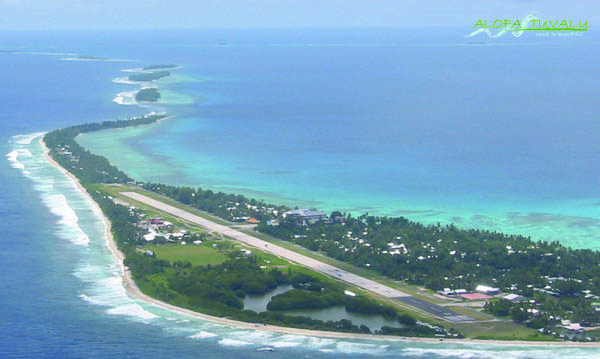
Terra Sprague, Research Fellow, Graduate School of Education
Small Island Developing States (SIDS) are quickly finding themselves at the sharp end of global climate change, yet they often get overlooked when it comes to international policy deliberations and decisions. So, why should we listen, and what can we learn?
When it comes to global policy deliberations about internationally agreed education targets and goals, such as the Education for All (EFA) goals and the education-related Millennium Development Goals (MDGs), small states have often found that their priorities are largely overlooked.

Michael Crossley, Professor of Comparative and International Education
At the Education in Small States Research Group in the Graduate School of Education (GSoE), our recent research focuses upon the educational policy priorities of Commonwealth small states, and others with populations of up to 1.5 million. There are 32 of these states within the Commonwealth alone, generally concentrated in the Caribbean and Pacific regions, but with some additional members such as Botswana and Namibia. These states often share common factors such as isolation, remoteness, and susceptibility to natural disaster shock, but they are extremely diverse in terms of their cultures, languages, human development indicators and gross domestic product (GDP).
Drawing upon the comparative tradition in educational research, our collaborative work at the Education in Small States Research Group seeks to highlight ways in which others can learn from the experience of small states while avoiding the pitfalls of uncritical international policy transfer. The research group, which will celebrate its 20th anniversary in 2014, works with researchers, policy makers and practitioners within and from small states worldwide.
International attention and funding for education development in recent decades has largely focused upon primary school enrolment. Many small states have a strong track record in this area and their own educational planning priorities have often, necessarily, been elsewhere. This has included ways of overcoming limited human resources and the challenges generated by economies of scale. Successes have been achieved in some distinctive areas such as with the development of tertiary education, in the harnessing of the power of technology for distance and flexible learning, and in the establishment of regional universities. During recent years, small states have also developed a wealth of experience in dealing with climate change adaptation and implementing education for sustainable development (ESD). This ranges from establishing university courses on ESD to mainstreaming ESD into school curricula and developing non-formal, community-based ESD initiatives like Sandwatch.
We cannot deny the importance of ESD in today’s global circumstances, when countries like Tuvalu are at the risk of losing their homelands even to a minimal rise in sea level. It’s time to start listening to the small states’ experience, particularly when it comes to the environmental aspect of ESD. Today, it is possible for the message of small states to make an impact upon global policy development, particularly as we approach the 2015 deadline of the EFA goals and the MDGs. Current international deliberations are seeking ways of incorporating sustainable development (SD) into the post-2015 development framework, rather than keeping SD as a separate set of goals and targets. All of this has implications for the ESD movement and the role that education should play in the post-2015 development framework. We cannot afford for ESD to be minimised to policy rhetoric. More work is necessary to define ESD and to find ways of integrating it into schools, universities and everyday ways of life. The Commonwealth, in its recent investigation into mainstreaming ESD in SIDS has rightly pointed out that, ‘ESD is not a new initiative to be undertaken on top of everything else, but rather, a set of principles that can be interwoven into existing initiatives and programmes to add value to their delivery.’
The University of Bristol is well poised to make a contribution to the learning potential of the small states experience, particularly with the interdisciplinary work being undertaken by the Cabot Institute, which is already making links with small states. As a university seeking to strengthen its own ESD practices, and one poised to make a contribution to wider ESD and SD policy, through the Cabot Institute, the GSoE, and other initiatives, let us continue to develop understandings of ESD from the wealth of experience of small states – before the sharp end becomes the deep.

